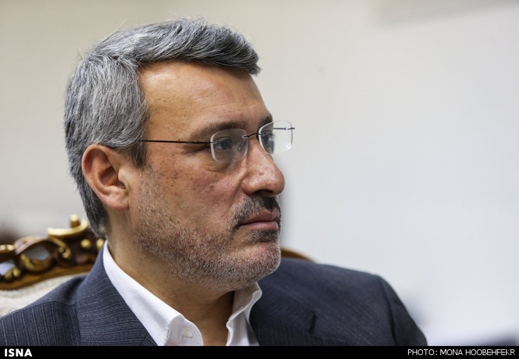Head of the technical team of Iranian nuclear negotiators said on Monday that the Joint Comprehensive Plan of Action is a political document, and its ratification in Parliament will not change its nature from political to legal.
Director General of the Foreign Ministry’s Political and International Security Department said that under international law, the criterion for recognizing an international document is the will of the people who have devised that document.
“From the very beginning, the negotiators had no doubt that this document is a political one, inclusive of voluntary commitments for both sides,” he added.
The chief legal expert of the Iranian nuclear negotiations team also said that from day one, the will of the negotiating sides was that the document was not legal in nature; therefore, there is no need for the Parliament’s ratification of it.
“Our main worry is that we will turn a political and voluntary commitment into an obligatory and abiding text. The nature of this document is political and voluntary and no sound mind will turn a voluntary, non-abiding text into an obligatory one,” he said.
Baidinejad added, “Of course if by turning JCPOA into an obligatory text for ourselves we could have also convinced the other countries to turn it into a legal text for themselves as well, it would have been a different story, but despite our Parliament’s ratification, the document will remain merely a political text for other countries, not a legal one,” he said.
In response to a question on the accusation that signing the deal has resulted in the demolition of 100 natural rights of Iran, Baidinejad said that if there is a right, no text can demolish it. “In international law a right is either natural or it must be recognized in accordance with an international agreement.”
“From this viewpoint, enrichment is not an absolute right. We consider it our natural right but the Westerners do not believe so. One of the differences of opinion on the NPT is whether it considers enrichment a right, or not. It was us who said that either Iran’s enrichment right will be recognized, or we will not negotiate,” he added.
Baidinejad referred to the US policy-shift in recognizing Iran’s enrichment right. “Bill Burns emphatically said in the negotiations: We are ready to recognize Iran’s enrichment right for the first time, but we will negotiate about its extent,” he said.
Member of the negotiations team said, “This is a part of our history. The nuclear negotiations file will not be closed, but there is no need to open files for new antagonist arguments. The nuclear file is a national file. When the US does not intend to turn it into a controversial debate in its country, why should we do so in our country?”
Parliament and JCPOA
Baidinejad also said that Parliament can play three roles regarding the JCPOA. “They might play no role at all regarding JCPOA, which is the first case. The second option is that they will ratify it, and ratifying is the most perfect thing that the Parliament can do with that text,” he said.
He said that both those options are ‘imprecise’, adding, “The nuclear negotiations team from the very beginning believed that the middle and realistic way is Parliament’s full engagement with JCPOA, effective participation in approving of and implementing it, thorough understanding it, and preparing the path for its proper implementation.”
Supreme Leader misinterpreted
On Supreme Leader’s recent comments in a meeting with members of the Experts Assembly, Baidinejad said, “It is surprising that although the Leader’s comments were quite clear, some media journalists said that the Leader made everyone’s duty clear as it is now Parliament that should ratify JCPOA.”
Baidinejad said that the Leader’s comments are quite technical and precise. Whether Parliament will approve of JCPOA, or not is a technical discussion, not a discussion between the government and Parliament. Nor is it a political debate.
“The point is that legal interactions should make clear whether there is any need to Parliament’s ratification of the JCPOA, or not,” he said,
He said that if the Parliament will come up with the conclusion and the lawmaking bodies in the country will approve of its decision that it is necessary for Parliament to ratify JCPOA, the government will have no problem with it, because Parliament’s stand is not opposing JCPOA.
